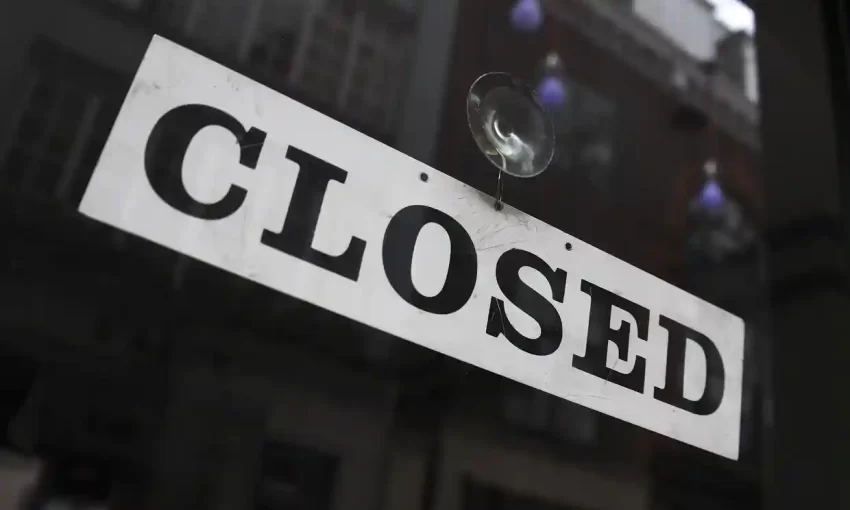Restaurants and cafes across the UK are going insolvent at a pace not seen for more than a decade, new research shows.
A total of 3,347 eateries have been unable to pay their debts in the past two years to March 2023, according to data from the Insolvency Service.
During the first three months of 2023, an average of six restaurants were affected every day.
Businesses declare insolvency when they are unable to afford the repayments for their debts. Of those restaurants declared insolvent, 98% of cases have ended with the business being shut down.
However, it is not simply because of consistently high interest rates, it’s also because the cost of taking on debt has become more expensive since the start of the year. Interest rates on business loans in particular have jumped to more than 6%.
The reasons why restaurants are struggling are myriad, but the likes of UK Hospitality have also pointed out that energy prices are slowly choking the industry too. With energy prices up at about 80% on average, is it any wonder the industry is struggling?
Data collected by CGA Insight on behalf of the British Institute of Innkeeping, UKHospitality, the British Beer and Pub Association and Hospitality Ulster showed businesses that were forced into long-term fixed rate contracts between July and September 2022, as energy prices continued to rise, felt the least optimistic about their prospects over the next 12 months.
Of those businesses that locked into a contract at the peak of the energy crisis between July and September almost half (46%) felt their business was at risk of failure in the next 12 months, with 92% citing energy prices as a significant contributor to that risk. These businesses were also less likely to have cash reserves and almost half (46%) of all respondents had less than three months’ worth.
Hospitality seems to always be the sector that suffers quite profoundly when the cost of living starts to bite. One of the most commonly-eschewed luxuries when belts need to be tightened, it’s an industry that suffers from literal feast and famine almost immediately.
Calls have been made by many that hospitality should be treated better overall. For example, in 2022, it brought in around £54 billion to the UK Treasury in receipts, so calls for Government support have been made to try and maintain this.
Overall, it seems restaurants have a need to not only diversify and create attractive businesses for customers to flock to, but to offer something cost-effective too. Truly a double edged sword it will be worth watching to see how this progresses over time and whether we will see a new wave of more agile and innovative businesses emerge.
Need some free advice?
Knowing what to do when your business is struggling is difficult, that’s why Forbes Burton offer free, no-obligation advice to explore your options.
Call them today for free, confidential advice on 0800 975 0380 or arrange a free meeting with one of there advisers.


